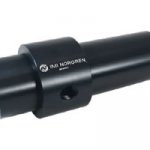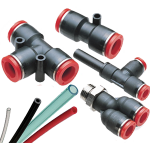The Hidden Impact of Hydraulic Valve on Efficiency, Safety, and Equipment Longevity
Hydraulic systems quietly power much of the machinery we rely on, and the hydraulic valve is at the heart of it all. These small components regulate forces that can reach thousands of pounds, and their performance ripples through your operations: from energy bills and safety protocols to how long your gear lasts.
Want to discover how just one component can change your bottom line? Keep reading to learn more with Air & Hydraulic Equipment!
How the Hydraulic Valve Shapes Operational Efficiency
A hydraulic valve controls fluid flow and pressure in real time. When it does its job well, your system runs smoothly and uses less energy. Choosing the correct valve type can significantly optimize system response and reduce energy waste
For example, temperature- and pressure-compensated flow-control hydraulic valves adapt to changing conditions, maintaining consistent output even if pressure or oil viscosity fluctuates. That means less throttling, fewer energy losses, and better performance under load.
Even small valve upgrades yield big energy savings. If you need help selecting the right hydraulic valve for your system, contact a hydraulic specialist now!
Hydraulic Valve and Safety: Preventing Catastrophic Failure
Safety in high-pressure systems is non-negotiable, and hydraulic valves are key:
- Relief valves protect against over-pressure, preventing sudden hose bursts or component failure.
- Sequence valves ensure operations occur in correct order, avoiding rogue actuator movements.
- Counterbalance valves prevent unintended lowering of loads.
- Solenoid or directional control valves add fail-safe mechanisms, implementing emergency stops or automated shut-offs.
Want to add safety layers to your hydraulic system? Let’s talk valve solutions!
Choosing the Right Hydraulic Valve: Factors to Consider
The hydraulic valve might be small and out of sight, but its impact on efficiency, safety, and longevity is massive. By understanding what valve type you need, pairing it with clean systems and scheduled maintenance, you’re investing in upgraded operations:
- System Pressure & Flow Rate: Matching valve specs to your system prevents inefficiency.
- Valve Type Matters: Flow-control, pressure, directional, safety valves each have their place.
- Fluid Compatibility & Filtration: Clean fluid keeps valve internals intact; AHE stresses filtration’s importance.
- Environment & Duty Cycle: High switch-rate systems benefit from solenoids like Nachi’s low-power valve for quiet, efficient, and durable operation.
- Maintenance Access: Choosing valves that can be serviced or swapped quickly minimizes downtime.
Ask your hydraulic supplier for guidance. They can help tailor valve selections to your specific system.
The Hidden ROI of Hydraulic Valve Decisions
The right hydraulic valve does more than regulate fluid; it builds reliability into your operation:
- Energy Savings: Less wasted power, more productivity
- Safety Gains: Lower risk of pressure-related accidents
- Long-Term Savings: Reduced wear leads to fewer repairs and replacements
When sizing, type, and quality work together; your systems work better, safer, and longer.
Choose Air & Hydraulic Equipment
Air & Hydraulic Equipment has served industries across Tennessee and beyond for over 54 years. We offer expert support in selecting, installing, and maintaining hydraulic components, including hydraulic valve solutions tailored to your needs.
Visit us at Air & Hydraulic Equipment to streamline your operations with the right hydraulic valve today!










